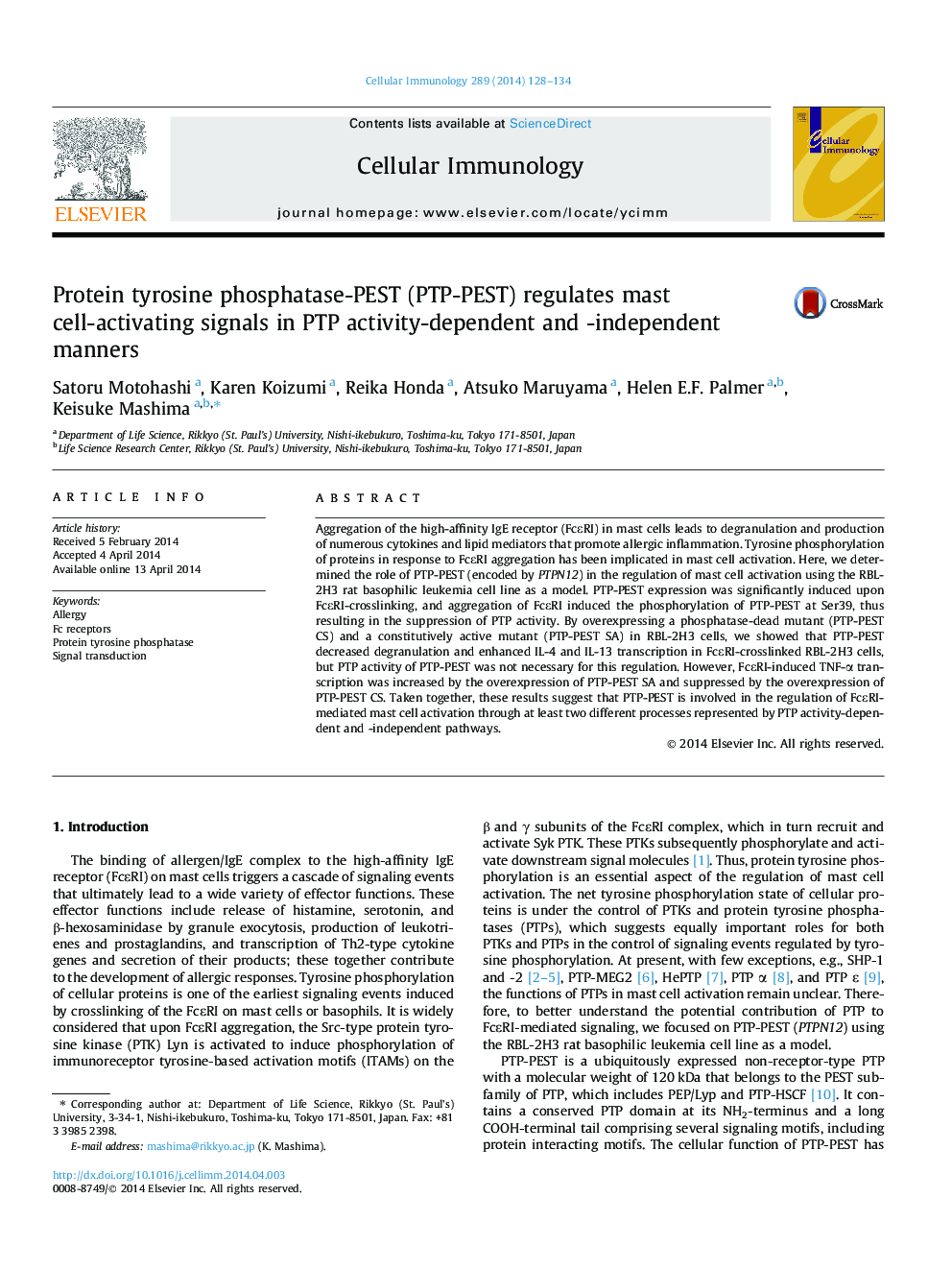| Article ID | Journal | Published Year | Pages | File Type |
|---|---|---|---|---|
| 8463874 | Cellular Immunology | 2014 | 7 Pages |
Abstract
Aggregation of the high-affinity IgE receptor (FcεRI) in mast cells leads to degranulation and production of numerous cytokines and lipid mediators that promote allergic inflammation. Tyrosine phosphorylation of proteins in response to FcεRI aggregation has been implicated in mast cell activation. Here, we determined the role of PTP-PEST (encoded by PTPN12) in the regulation of mast cell activation using the RBL-2H3 rat basophilic leukemia cell line as a model. PTP-PEST expression was significantly induced upon FcεRI-crosslinking, and aggregation of FcεRI induced the phosphorylation of PTP-PEST at Ser39, thus resulting in the suppression of PTP activity. By overexpressing a phosphatase-dead mutant (PTP-PEST CS) and a constitutively active mutant (PTP-PEST SA) in RBL-2H3 cells, we showed that PTP-PEST decreased degranulation and enhanced IL-4 and IL-13 transcription in FcεRI-crosslinked RBL-2H3 cells, but PTP activity of PTP-PEST was not necessary for this regulation. However, FcεRI-induced TNF-α transcription was increased by the overexpression of PTP-PEST SA and suppressed by the overexpression of PTP-PEST CS. Taken together, these results suggest that PTP-PEST is involved in the regulation of FcεRI-mediated mast cell activation through at least two different processes represented by PTP activity-dependent and -independent pathways.
Related Topics
Life Sciences
Biochemistry, Genetics and Molecular Biology
Cell Biology
Authors
Satoru Motohashi, Karen Koizumi, Reika Honda, Atsuko Maruyama, Helen E.F. Palmer, Keisuke Mashima,
